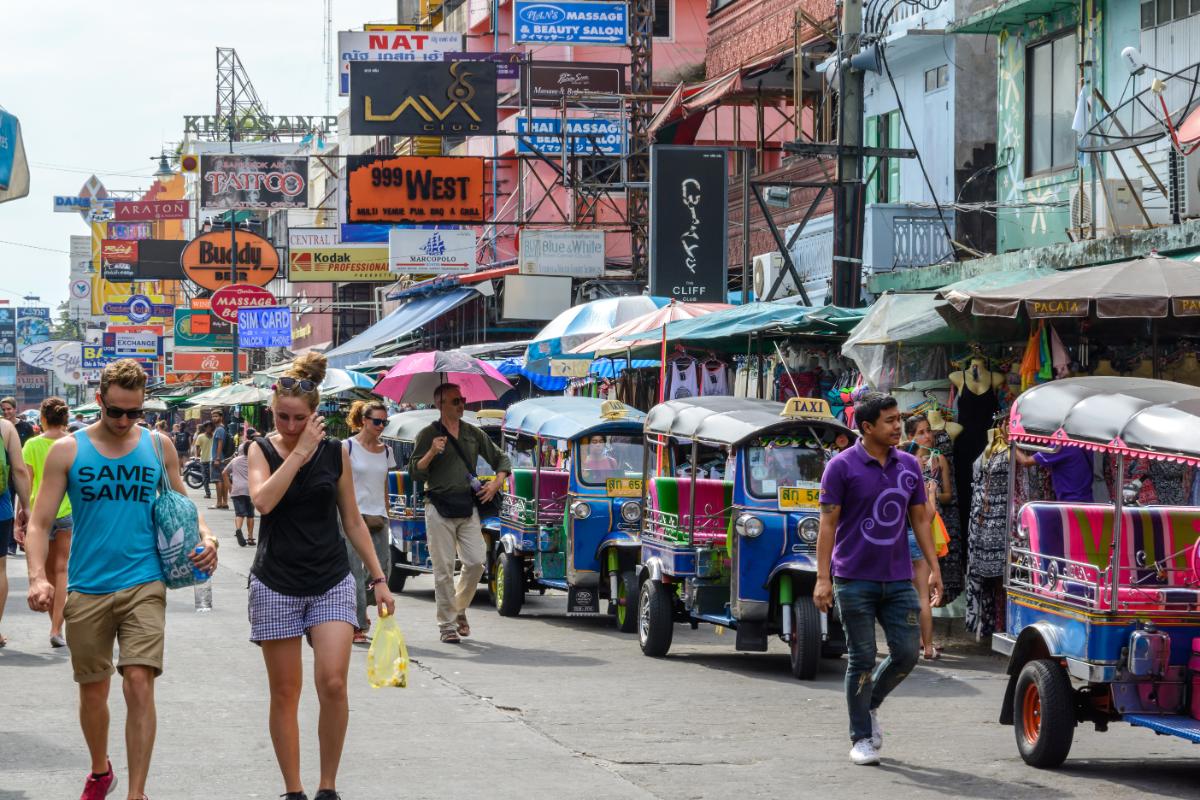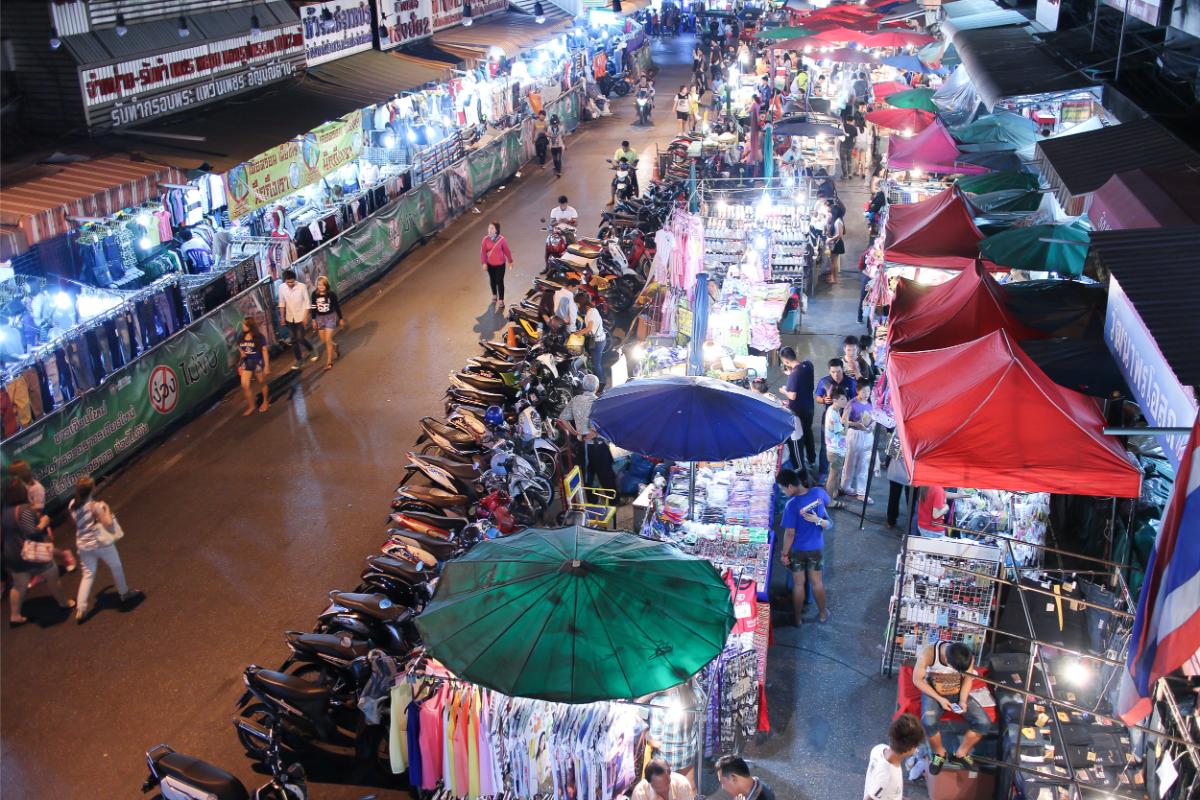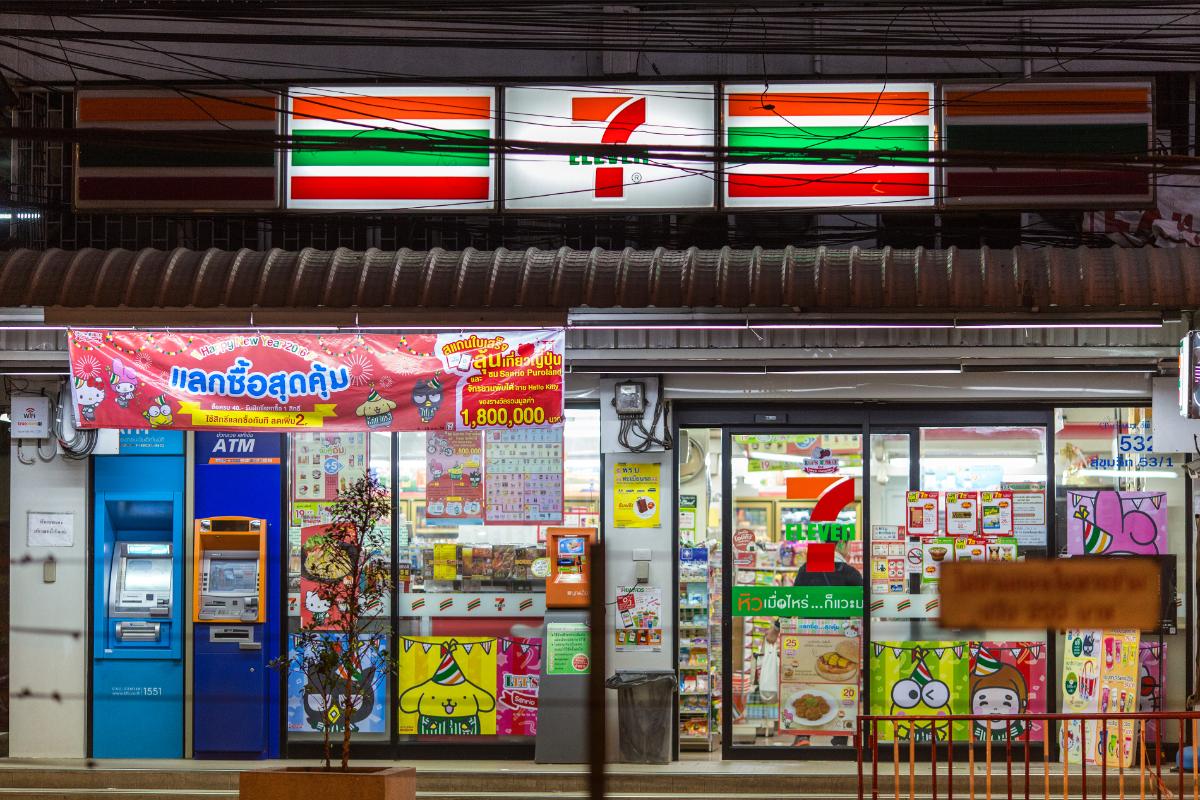Learn about the 8 most common tourist scams in Thailand – and how to avoid them to fully enjoy the Land of Smiles without any unwelcome surprises.
Tourists from all around the world visit Thailand for its beautiful beaches, delicious street food, and stunning islands.
However, like any popular tourist destination, Thailand is also home to some clever tourist scams.
As a savvy traveler, it’s crucial to be aware of these scams to fully enjoy the Land of Smiles without any unwelcome surprises.
That’s why we wrote this post about Thailand’s most common tourist scams – and how to avoid them.
The Most Common Tourist Scams in Thailand
The table below gives an overview of the most common tourist scams in Thailand.
| Thailand Tourist Scam | How to avoid |
|---|---|
| ‘Closed’ Attraction Scam | Check official websites for opening times |
| Taxi Scams | Insist on using the meter and have an idea of the route. |
| Tuk-tuk Scams | Negotiate a fixed price. |
| Gem Scams | Be careful with very cheap offers and stick to reputable stores. |
| Street Vendor Scams | Verify authenticity of products and negotiate a fair price. |
| Scooter/ Jet Ski Scam | Verify the authenticity of products and negotiate a fair price. |
| ATM Skimming | Use ATMs in secure locations and shield your PIN entry. |
| Internet and Wi-Fi Scams | Use a VPN to access sensitive information, such as your bank account. |
1. The ‘Closed’ Attraction Scam

The ‘Closed’ Attraction trick is one of the most common scams in Thailand. It often targets tourists heading to the Grand Palace in Bangkok, but it also happens elsewhere.
Tourists are misled by locals claiming that the tourist attraction they want to visit is closed, for example, because of a Buddhist ceremony.
They then offer to take them to a lesser-known attraction where they get a commission.
How to avoid: Always check Google or the official websites for the opening times. As the scammers usually approach you near the tourist attractions, I’d always check the entrance myself.
2. Taxi Scams in Thailand
One of the most frequent complaints among tourists in Thailand is being overcharged by taxis. Some drivers refuse to use meters or take longer routes to increase the fare.
How to avoid: Always insist on using the meter and have an idea of the route. I usually use Google Maps navigation and turn on voice commands so the driver notices I follow the route.
3. Tuk-Tuk Scams

Tuk-tuks are fun, and I think everyone should use them at least once in Thailand. However, there are also a lot of scams related to tuktuks.
Tuk-tuk drivers often overcharge tourists or take them on unsolicited tours to overpriced shops where they get a commission.
How to avoid: Always negotiate a fixed price before getting in the tuk-tuk. Ensure the driver takes you directly to your destination without stopping at a tailor or jewelry shop.
4. Gem Scams
Someone may approach you, offering gems or jewelry at bargain prices. The quality is often poor, and the stones are fake.
How to avoid: If a deal seems too good to be true, it probably is. Research before and stick to reputable stores.
5. Street Vendor Scams

Street vendors might charge you inflated prices or try to sell fake products.
How to avoid: I really enjoy shopping from local vendors in Thailand. However, for pricier items, it’s important to check their authenticity. It’s often safer to buy from well-known stores.
I usually compare prices and ask locals what a fair price is. While certain products or services have a fixed price, you should negotiate a FAIR price for others.
6. Scooter/ Jet Ski Scam
Some rental operators may falsely accuse customers of causing damage to their vehicles and then demand substantial payment, often using aggressive tactics to intimidate them.
How to avoid: Always take photos and videos before renting! Use only reputable companies.
I’d also never leave my passport as a deposit!!! I was once in Koh Phangan, and the rental company asked my friend for a high price before returning his passport – knowing that our ferry would depart soon, not leaving us time to call the police!
7. ATM Skimming

Criminals attach illegal card-reading devices to ATMs to steal card information from users. This information is then used to clone cards or perform unauthorized transactions.
How to avoid: Use ATMs in secure locations, like banks, busy streets, or shops. Always shield your PIN entry. I also recommend checking your bank statements regularly for any unauthorized transactions.
8. Internet and Wi-Fi Scams
Using unsecured Wi-Fi networks can lead to data theft.
How to avoid: Avoid accessing sensitive information, like logging in to your bank account, on public networks. I also highly recommend using a VPN (I use Express VPN)!
Frequently Asked Questions
Are there any specific areas in Thailand where scams happen more often?
Tourist-heavy areas like Bangkok, Phuket, and Pattaya tend to have more scam incidents.
What are the most common tourist scams in Thailand?
The most common tourist scams in Thailand include Tuk-tuk scams, taxi scams, the ‘closed’ attraction scams, Gem scams, Street Vendor Scams, and ATM skimming.
What should I do if I suspect I’m being scammed?
Stay calm, decline any offers or demands firmly, and seek help from local authorities if needed.
How can I protect my credit card information in Thailand?
Watch your card during transactions, use a VPN when accessing your online banking, and check for skimming devices on ATMs.




Leave a Reply